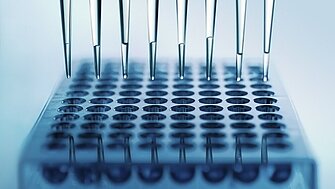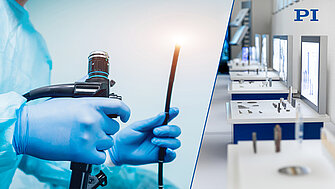Menu
Close
Home
Products
Back
Products
Product Finder
Customized Products
Hexapods
Nanopositioning Piezo Flexure Stages
Back
Nanopositioning Piezo Flexure Stages
Multi-Axis Piezo Flexure Stages
PIFOC® Objective & PInano® Sample Scanners for Microscopy
Linear Piezo Flexure Stages
XY Piezo Flexure Stages
XYZ Piezo Flexure Scanners
Piezo Flexure Tilting Mirrors
Miniature Stages
Back
Miniature Stages
Miniature Linear Stages
Miniature Rotation Stages
Miniature Hexapods
Linear Stages
Back
Linear Stages
Stages with Magnetic Direct-Drive Linear Motor
Stages with Stepper, DC & Brushless DC (BLDC) Motors
Vertical Stages with Stepper, DC & Brushless DC (BLDC) Motors
Miniature Linear Stages
Linear Actuators
Back
Linear Actuators
PiezoMike for Long-Term Stability
Linear Actuators with Stepper & DC Servo Motors
Voice Coil Actuators with High Dynamics & Force Control Option
PiezoMove Lever Actuators
Nanopositioning Piezo Actuators
PiezoWalk® Actuators with High Force & Stability
PIRest Active Piezo Shims
Rotation Stages
XY Stages
Engineered Subsystems for Automation
Fast Multi-Channel Photonics Alignment
Software Suite
Back
Software Suite
Communication Concept & Platform-Independent Interfaces
Motion Control Software
Simulation & Emulation
Programming, Interfaces, and Integration
3rd Party Integrations
Scan and Alignment Tasks
Controllers & Drivers
Back
Controllers & Drivers
Nanopositioning Piezo Controllers
Piezo Drivers for Open-Loop Operation of Piezo Actuators
Motion Controllers & Drivers for Linear, Torque, Stepper & DC Servo Motors
Controllers & Drivers for Piezomotors
Controller Systems for Multiple Axes & Mixed Drive Types
Hexapod Motion Controllers
Piezoelectric Transducers & Actuators
Back
Piezoelectric Transducers & Actuators
Discs and Cylinders
Plates, Blocks, and Rods
Rings
Tubes
Spheres and Hemispheres
Piezoceramic Composites
Bending Elements
PICMA® Piezo Linear Actuators
PICMA® Piezo Bender Actuators
PICA Piezoelectric Stack Actuators
DuraAct Patch Transducers
Ultrasonic Transducers
Picoactuator® Piezoelectric Crystal
Air Bearings & Stages
Sensors, Components & Accessories
Vacuum
Expertise
Back
Expertise
Markets
Back
Markets
Industrial Automation
Back
Industrial Automation
Laser Materials Processing
Electronics Manufacturing
Measurement, Test & Inspection
Flow Metering
Sensor Devices
Hydroacoustics
Industrial Dispensing
Industrial Printing
Microscopy & Life Sciences
Back
Microscopy & Life Sciences
Surgical Robots
Endoscopy & In Vivo Diagnostics
IVD In Vitro Diagnostics
Microscopy
Therapeutic & Surgical Instruments
Medical Sensors
Microfluidics
Diagnostic Imaging
Medical Implants
Semiconductor
Photonics
Back
Photonics
Silicon Photonics
Quantum Photonics
Free Space Optical Communication
Large-Scale Scientific Projects
Back
Large-Scale Scientific Projects
Astronomy
Beamline Instrumentation
Customers
Back
Customers
OEM
OEM Piezo Ceramics
Back
OEM Piezo Ceramics
Technologies for Piezo Ceramics Production
Customer Testimonials
Technologies
Back
Technologies
Piezo Technology
Back
Piezo Technology
Fundamentals of Piezo Technology
Properties of Piezo Actuators
Generating Ultrasound
Piezoceramic Materials
Manufacturing Technology
PICMA® Technology
Integrated Piezo Actuators
DuraAct Patch Transducer Technology
PIRest Actuators
Piezoelectric Drives
Back
Piezoelectric Drives
Piezo Actuators
PiezoWalk® Walking Drives
PILine® Ultrasonic Piezomotors
Piezo Inertia Drives
PiezoMike Linear Actuators
Comparison: Piezo Motors & Drive Technologies
Electromagnetic Drives
Back
Electromagnetic Drives
Rotating Electric Motors
Magnetic Direct Drives
PIMag® 6-D Magnetic Levitation
Hybrid Concept
Parallel Kinematics
Back
Parallel Kinematics
Hexapods Features at a Glance
Piezo Positioning Systems with Parallel Kinematics
Multi-Axis Positioners
Hexapods as Motion Simulator
Hexapods in Microproduction
Sensor Technologies
Back
Sensor Technologies
Capacitive Sensors
Incremental Sensors
PIOne Optical Nanometrology Encoder
Comparison: Position Sensor Technologies
Controllers & Software
Back
Controllers & Software
Digital & Analog Interfaces
EtherCAT Connectivity of PI Products
Control of Piezo Actuators
Digital Motion Controllers
Software
Active Alignment
Guiding Systems & Force Transmission
Back
Guiding Systems & Force Transmission
Classical Guiding Systems
Flexure Guiding Systems
Magnetic Bearings
PIglide Air Bearing Technology
Vacuum
Future Zone
Back
Future Zone
Magnetic Levitation
Lever Hexapods
Surface Shaping
Miniature Tip/Tilt Mirror with Ultrasonic Drive
Electro-Optical Wafer Probing
Competencies
Back
Competencies
Piezo Technology
Nano Positioning
Performance Automation
Knowledge Center
Back
Knowledge Center
Downloads
Back
Downloads
Product Documentation & Software
Catalogs, Brochures & Certificates
White Papers & Success Stories
Product and System Demonstrators
Knowledge Exchange
Back
Knowledge Exchange
Webinars
Lunch and Learn
PI Inspirations
It's Possible Sessions – Laser World of PI
It’s Possible Sessions – Enabling the Technologies for Semicon
It’s Possible Sessions – Unleashing the Power of Photonics
Register Now! Joint Webinar Averna & PI
Blog
Glossary
About PI
Back
About PI
The PI Group
Back
The PI Group
About ACS Motion Control
About PI Ceramic
About PI miCos
Press
Events
Back
Events
Virtual Trade Show Stands
ILAS 2025
ILAS 2023
Visit PI at Space-Comm
ILAS 2021 Virtual Trade Show
AILU: Digital Technology in Laser Manufacturing
Capabilities
Back
Capabilities
Hexapod Production
Sustainable Investment
Manufacturing in Cleanrooms at PI
Fractal Manufacturing Structure at PI
Technology Center
Heavy Duty Hall
Metrology
Certified Quality
Locations & Addresses



